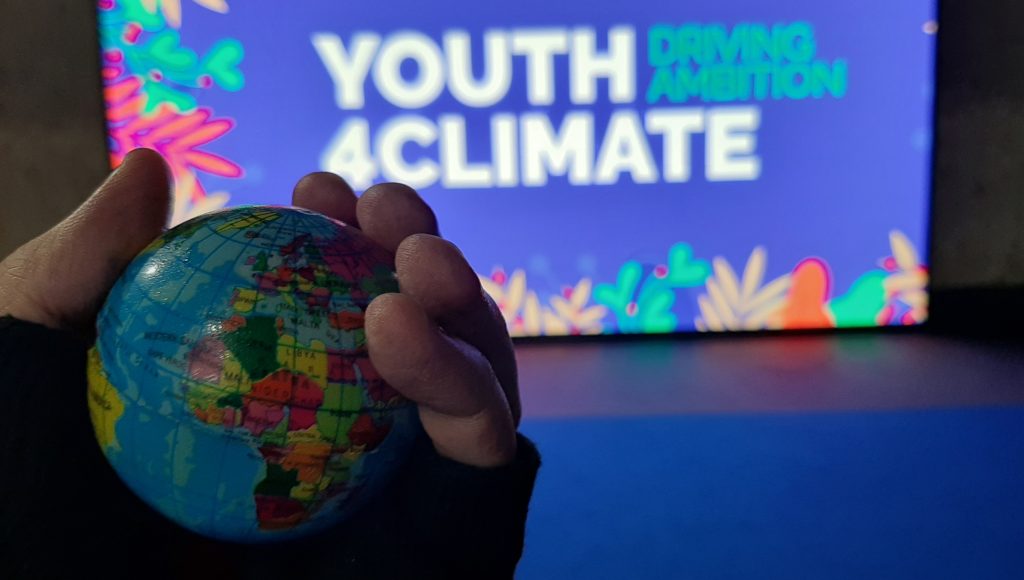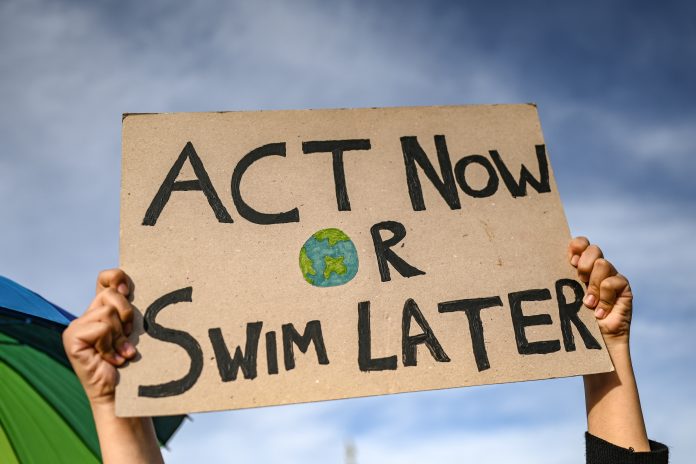The Youth4Climate event was intended to usher in a more meaningful youth engagement at global climate action. Unfortunately, the conference fall short of high expectations.
This was through no fault of the 400 young advocates, though. From inside the halls of the pre-COP event proper to the tree-planting ceremony, we did our best to ensure that our demands for more urgent, just, and effective adaptation and mitigation were heard.
Yet the climate crisis, and solving it, cannot be a one-way street. It must involve the willingness of all sectors to listen and work together to implement solutions on the road to climate-resilient, sustainable development.
From our view, however, this was not the case. For instance, the delegates did not hold back with their questions to ministers in attendance, wanting actual commitments and targets for adaptation, mitigation, and finance from their leaders themselves.
What happened instead only confirmed their fears. The ministers refused to directly answer the hard-hitting questions. Some of their remarks insinuated that youth involvement is something that needs to be introduced, despite the fact that we have been working hard for our future for years to decades now. Some of them were looking at their phones while delegates delivered their speeches. It almost seemed like to them, this was a ceremonial duty, an event intended as symbolic more than substantial.
The tokenistic approach to the participation of non-government stakeholders in climate-related processes is not just a global issue, but also a problem in the Philippines.
For instance, the development of the country’s targets under its Nationally Determined Contributions (NDC) is reminiscent of our experience at Youth4Climate. Government consultations with non-government representatives were few. And when those did happen, there was little indication that recommendations by many groups were taken into consideration.
Heading to COP26, there are signs that once again, some of the top government officials do not see the pivotal climate summit as vital to building a nation resilient to the climate crisis. It is such a shame that the Philippines, which was once one of the most important voices in the negotiations and was responsible for the 1.5-degree target under the Paris Agreement, has seen its influence dwindle in recent years.
This decline is due to a combination of misplaced priorities, lack of understanding of the science and context behind global and national processes, and a lack of trust in non-government sectors. They are problems that delegates from other countries have had to deal with as well.

Going back to the Youth4Climate event, we were understandably frustrated by these developments. Some participated in the youth climate strike in the streets of Milan the day after the event. During the plenary speech of Italian Prime Minister Mario Draghi, a few delegates also held a protest before being removed from the building.
But that was not the only source of disappointment, as many delegates were inconvenienced by another issue: the logistics of the event.
It is understandable that there will be problems in organizing an event of this scale. But we are in the midst of the COVID-19 pandemic, which only highlights and worsens existing inequalities. Safety and security of participants, all of whom were invited by the Italian government, should be a priority.
To be fair, strict protocols were implemented throughout the event. Antigen tests were required before entering the venue, while RT-PCR tests were freely conducted before exiting Italy.
However, these did not prevent incidents from occurring. Several delegates, especially those from vulnerable countries, missed their flights due to delays in receiving their test results. We also observed multiple incidences of miscommunication and lack of approachability from organizing staff, which increases risks for the young representatives.
These cases only justify the concern of youth delegates, and other non-government representatives, who are also planning to attend COP26. On access to vaccines or being hit by climate change impacts, the current crises we are facing only worsen inequalities that unjustly affect vulnerable nations and communities.
Previous negotiations have been marred with lack of meaningful inclusion for civil society groups, with the most recent case happening at the Madrid climate summit two years ago. Should the UK government fail to learn from the shortcomings of its Italian counterpart, the progress that was promised heading to COP26 will be another false one, the type of unsustainable progress where many are left behind and only the rich benefit.
Just because you do not experience it yourself does not mean it never happens. That applies to the climate crisis, COVID-19, martial law, or any other issue.
Never believe that the youth are too young or lack experience to make a difference. Never believe that going against the established system automatically paints you as a villain. If we look at our history at the global or national level, some of the most game-changing movements were spearheaded by young people, from civil rights to counter cultural transformations. The same holds true for tackling the climate crisis, which affects everything and everyone.
For all the pros and cons from the historic Youth4Climate event, it is only one step of a long, difficult journey. Will this be remembered as a game-changer in our fight against the climate crisis, a threat of our making?
One thing is for sure: in-person or virtually, we will be watching. We will not be silenced. And we are ready to step up. Are you?
John Leo is one of the two Philippine representatives to the “Youth4Climate: Driving Ambition” pre-COP event in Milan, Italy. He will represent Philippine civil society at the 2021 UN climate negotiations (COP26) this November in Glasgow, United Kingdom.









